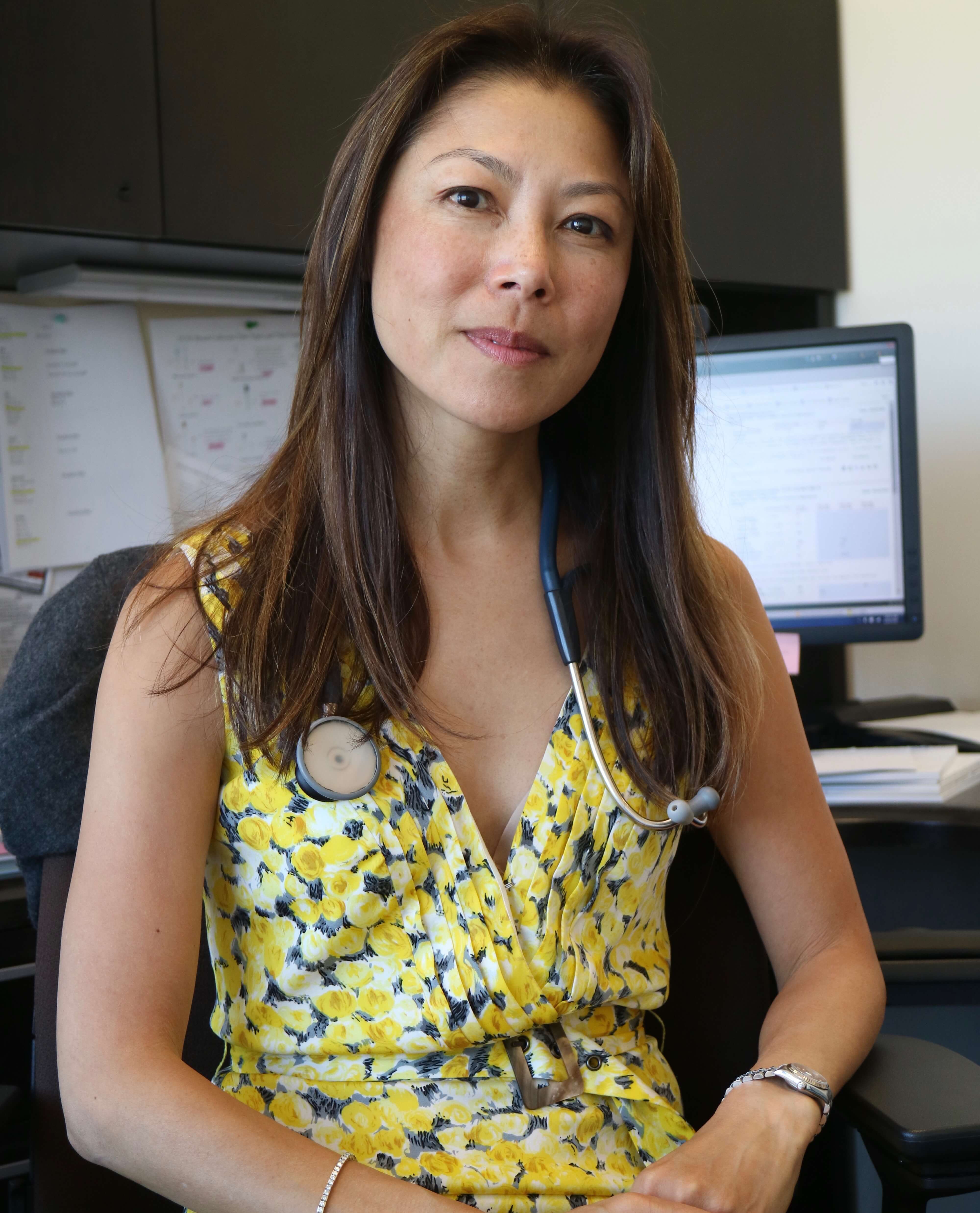
Q: In a couple sentences, what do you do in your work?
A: I’m a primary care physician, which means that I am the first stop for patients that don’t feel well. I am their generalist and I take care of everything from simple skin lesions, to coughs and colds, to being the first stop for a patient if they’re having chest pain and potentially a heart attack or stroke. I’m in a specialized practice (concierge practice), which enables me to be a little more attentive to my patient’s needs and be more responsive. I love that part of it…of being close to them and being able to get to their needs or questions as quickly as possible. I’m fortunately able to do that. It means that I am on call a lot more. Patients can potentially call me at all hours of the day, and have done so. But for the most part, they are very respectful and understanding.
Q: What’s your favorite part about being a scientist?
A: My favorite part is helping people in a meaningful way. I’m not an edge scientist; I don’t do basic science. My interests focus more on what the research and findings from the people in QBI mean in real life… to my living, breathing, walking and talking patients. I think that their discoveries and innovations have a lot of clinical relevance and have the potential to improve their lives in vast, significant ways.
Q: What do you look forward to in your work?
A: I think that part of what QBI is doing that is so exciting is certainly all the genomic research that pertains to neurodegenerative disorders, as well as all the data that we’re getting that pertain to the microbiome. There isn’t a day in my practice in which someone doesn’t call or come in to complain about abdominal pain. To be able to run a simple genetic test to explain to someone their symptoms is not something that is currently available right now. But I think that what QBI is doing right now has the potential to make answering that question for a patient a whole lot easier and a whole lot more specific, and more satisfying for both me as the doctor and my patients who are suffering.
Q: At the end of the day, why does your work matter?
A: I think my work matters because at the end of the day we all need to be able to get up and walk across the room, breathe, talk, eat, love, cherish and hug our family and friends. Without your health, you’re not able to do that. It’s a basic, basic part of our existence that we don’t truly appreciate until we don’t have it, and those that don’t have their health really appreciate something as simple as breathing.
Q: Outside of work, what do you do to relax?
A: I love being outdoors, I love exercise, I love eating. I’m particularly passionate about modern art, particularly abstract expressionism and minimalism. I think that there is a very soothing quality to those forms of art that sort of compliment the chaos in my daily life.
Q: What situation do you think you’d feel the most out-of-place in?
A: I have no idea how to fix a toilet or any household task. I am not handy in the house.
Q: In 100 years, what do you want to be remembered for?
A: As a clinician, I would like to be remembered for my thoroughness, attention to detail, compassion and warmth. As an investigator or consultant to QBI, I’d like to be remembered for bringing the human element to basic science and being a critical link to patients and all that is clinically relevant about the discoveries and the things that matter to patients.
Journalism credit: Alexa Rocourt